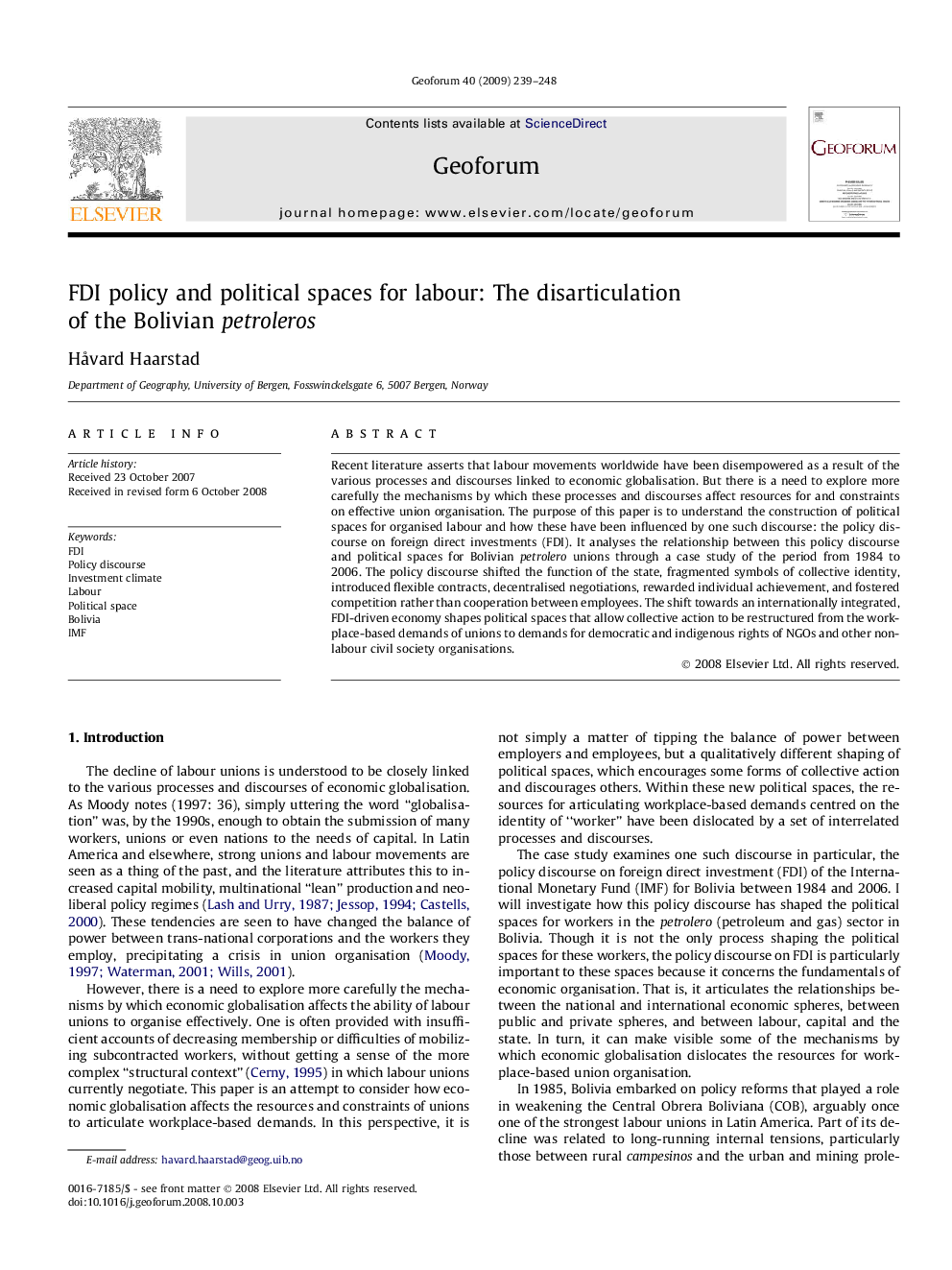| Article ID | Journal | Published Year | Pages | File Type |
|---|---|---|---|---|
| 5074731 | Geoforum | 2009 | 10 Pages |
Abstract
Recent literature asserts that labour movements worldwide have been disempowered as a result of the various processes and discourses linked to economic globalisation. But there is a need to explore more carefully the mechanisms by which these processes and discourses affect resources for and constraints on effective union organisation. The purpose of this paper is to understand the construction of political spaces for organised labour and how these have been influenced by one such discourse: the policy discourse on foreign direct investments (FDI). It analyses the relationship between this policy discourse and political spaces for Bolivian petrolero unions through a case study of the period from 1984 to 2006. The policy discourse shifted the function of the state, fragmented symbols of collective identity, introduced flexible contracts, decentralised negotiations, rewarded individual achievement, and fostered competition rather than cooperation between employees. The shift towards an internationally integrated, FDI-driven economy shapes political spaces that allow collective action to be restructured from the workplace-based demands of unions to demands for democratic and indigenous rights of NGOs and other non-labour civil society organisations.
Related Topics
Social Sciences and Humanities
Economics, Econometrics and Finance
Economics and Econometrics
Authors
HÃ¥vard Haarstad,
